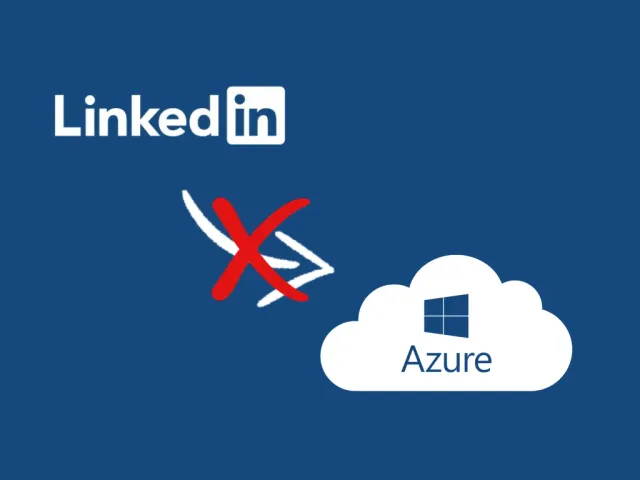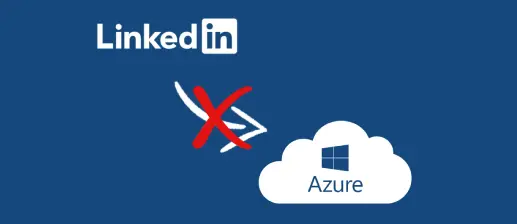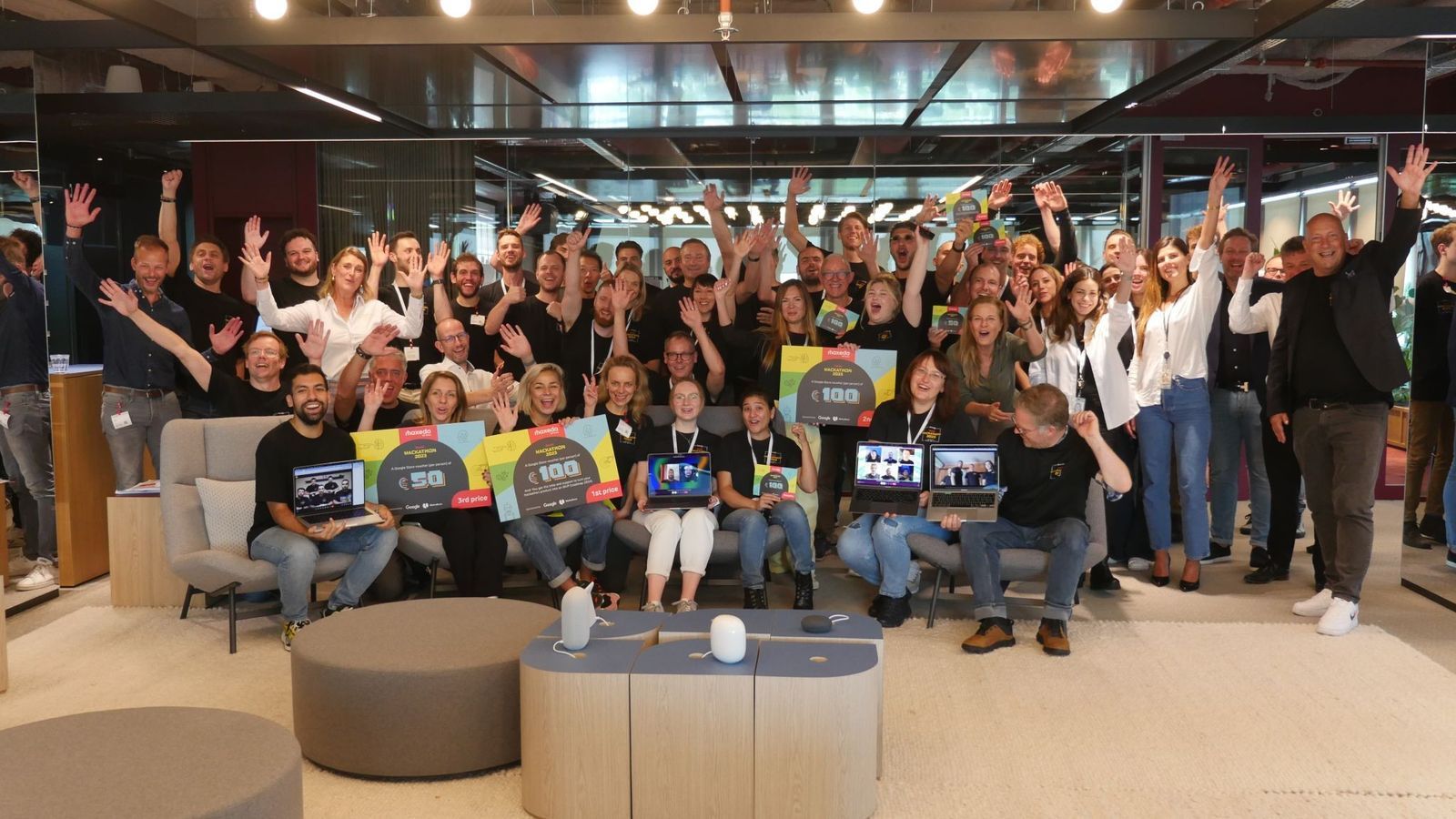LinkedIn, part of Microsoft, decides to ditch data centre migration to Azure
What went wrong? Microsoft owns both LinkedIn and Azure. 🤷♂️

LinkedIn has officially scrapped its ambitious "Blueshift" initiative to migrate its data centre infrastructure to Microsoft's Azure cloud service. This decision comes four years after Microsoft's acquisition of LinkedIn for a whopping $27 billion. Despite the initial enthusiasm and a 2019 blog post outlining plans for a multi-year migration to the public cloud, LinkedIn faced numerous hurdles along the way.
Lift & Shift
The challenges encountered during the execution of Blueshift prompted LinkedIn to rethink its strategy. According to sources, the difficulties arose when attempting to transition existing software tools to Azure. Rather than smoothly adapting to Microsoft's cloud environment, LinkedIn encountered issues with a "lift and shift" approach, where existing tools were transferred without the necessary adjustments to run seamlessly on Azure.
In response to these obstacles, LinkedIn has invested in reinforcing its data centres and adopting Azure services selectively, striking a balance between in-house and cloud-based solutions. In a statement to The Register, a LinkedIn spokesperson confirmed this shift in direction, emphasizing the company's commitment to utilizing Azure where it aligns with their goals.
The reversal of LinkedIn's plans signifies a departure from the 2019 announcement by Mohak Shroff, the social network's Senior Vice President of Engineering, who expressed the intention to migrate all LinkedIn workloads to the public cloud. The vision was rooted in the desire to leverage Azure's global scale and access a range of hardware and software innovations to support the platform's expanding membership and business growth.
Hybrid Cloud
However, as 2022 unfolded, reports suggest that LinkedIn's Chief Technology Officer, Raghu Hiremagalur, communicated a change in strategy to employees. The company was pivoting towards a hybrid-cloud model, combining cloud services with its dedicated data centres. Despite leveraging some Azure services, such as Azure FrontDoor, for content delivery network needs, the overall shift to a public cloud infrastructure proved more complex than anticipated.
This shift by LinkedIn underscores the intricate challenges companies may face when attempting large-scale migrations to cloud services, emphasizing the importance of adaptability and a nuanced approach to integrating existing infrastructure with cloud solutions effectively.
We can help!
Unlock the power of seamless Cloud Hosting and Transformations with ZEN Software. Trust the experts who understand the delicate balance between on-premise and cloud-native solutions. Elevate your business to new heights – We’re ready to help you optimise your Cloud workloads!

Go Cloud Native, Go Big
Revolutionise your organisation by becoming a born-again cloud enterprise. Embrace the cloud and lead the future!
Read more:

LinkedIn, part of Microsoft, decides to ditch data centre migration to Azure
What went wrong? Microsoft owns both LinkedIn and Azure. :man_shrugging: ...

The Cloud Is Software — But What Kind of Software?
Everyone talks about the cloud as if it were some magical place. But peel back the layers, and you'll find something ver...

ZEN Software upgrades Wordpress Filogic.nl to Open Source Headless Cloud Solution for Unmatched Performance
Alkmaar, November 2023 — ZEN Software, a leader in innovative web solutions, proudly announces its latest success with F...

Praxis & Brico unleash the power of Generative AI in an inspiring Hackathon at Google
Hackathons have become the breeding grounds for groundbreaking ideas and solutions. The recent Praxis/Brico Hackathon, h...

This is how you prevent nightmare cloud bills: API Quotas and Budget Alerts
Sleepless nights over spiking cloud cost? we have an open source and gratis solution! In this article, we'll delve into ...

OpenTF forks Terraform, Blames HashiCorp for causing the fork
Two weeks after HashiCorp altered the licensing terms for its Terraform software, users, including corporate competitors...
